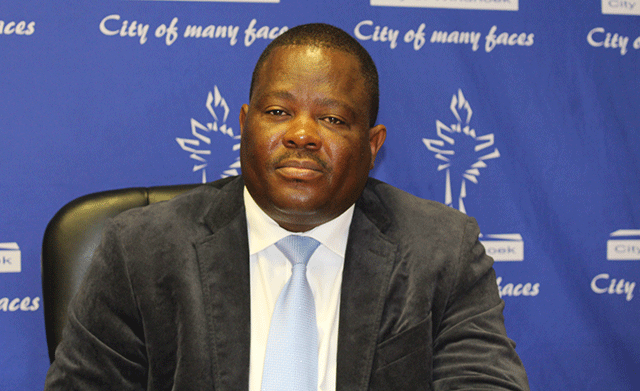CHIEF executive of the Electricity Control Board of Namibia (ECB) Robert Kahimise has assured Namibians that for the time being, the country will not be affected by constant load-shedding which has become the order of the day in South Africa (SA).
For years, Namibia has been depending on SA’s Eskom for its electricity supply, sparking paranoia due to the diminishing power supply capacity of that country to its citizens.
However, Kahimise told Desert Radio in a retrospective interview yesterday, Namibia has since diversified its energy, tapping electricity from power plants in Zambia and Zimbabwe.
“The fear could have been justified due to Namibia’s history of relying on imports from Eskom in SA. What the public probably does not know is that we have reduced our imports from SA and diversified our reliance into the region. We are now importing more from Zambia and Zimbabwe, rather than from SA,” Kahimise said.
He was, however, quick to maintain that the asset interconnector between Namibia and SA remains in place, through which the country can get about 100 megawatts of electricity, which Kahimise said, almost amounts to nothing, particularly with the ongoing load-shedding in SA.
“The highest we can get is 100 megawatts and with load-shedding it reduces. It is nothing. It is insignificant [and has] 0,0000% effect because of the big systems they have. But we are getting from Zambia through another interconnector and from Zimbabwe,” Kahimise said.
“The rest is the work of the traders and the Namibia Power Corporation (NamPower) to ensure that they optimise what we are getting electricity from the region and what they can sell back into the power pool. We have been given the same assurance that for the foreseeable future – we are talking about at least up to two years – Namibians are covered to avoid any load-shedding,” Kahimise said, adding that should there be any change, the regulator will communicate.
“But for now we want the people to move away from the fears and to focus on industrialising and implementing the country’s strategies in order to create employment and to grow the economy,” he said.
TARIFFS AND DEBTS
Kahimise, who joined the ECB at the helm in April this year from a stint at the City of Windhoek, told Desert Radio that one of his first tasks on the job was to redress NamPower’s debt collection regime, as well as to redress the national electricity utility’s bulk tariff.
This he said, is in light of the fact that while the ECB is charged with ensuring that licensed entities, including NamPower are financially stable, the parastatal also has a responsibility to look after the country’s broader economy, while considering the concerns and interests of the public.
“I have not even been in office for a year. When I arrived, we reviewed NamPower’s bulk tariff. It came in double digits, if I’m not mistaken, I think it was 14% or even higher. We ended up allowing NamPower 8,9% or so and it pushed the tariff just below N$2 of generation for 2023/24. That was my first priority,” Kahimise said.
“We have to ensure that the tariff increases – which we are responsible for – do not inhibit any growth and that we continue to attract investment into the sector. On the third leg, we have to consider the concerns in the interest of the public. That is the balancing act that we have to apply as a regulator.”
Queried on how his administration dealt with debt that was owed to NamPower, Kahimise did not mince words.
“It did not go well, I have to acknowledge. [There were] all types of accusations. [But] that is why we are leaders. We are not here to please anyone, but to do the right thing. And the right thing at the time was for the regulator to direct NamPower that rolling out blackouts due to defaulters was not fair in the first place, because even consumers in good standing will be affected. NamPower wanted to switch off Nored with four others,” he said, adding that this would have affected hospitals and customers that depend on Nored as a distributor “simply because the distributor owes NamPower”.
“That is why we stepped in. To ensure fairness. We made it very clear that their debt collection strategy is not fair. It was not well received, but we reached some sort of compromise,” Kahimise said, further maintaining that their call was only implemented, but later overtaken by a Cabinet directive which a technical committee has worked on.
“I think early next year we should await the directive from the Cabi
Stay informed with The Namibian – your source for credible journalism. Get in-depth reporting and opinions for
only N$85 a month. Invest in journalism, invest in democracy –
Subscribe Now!






